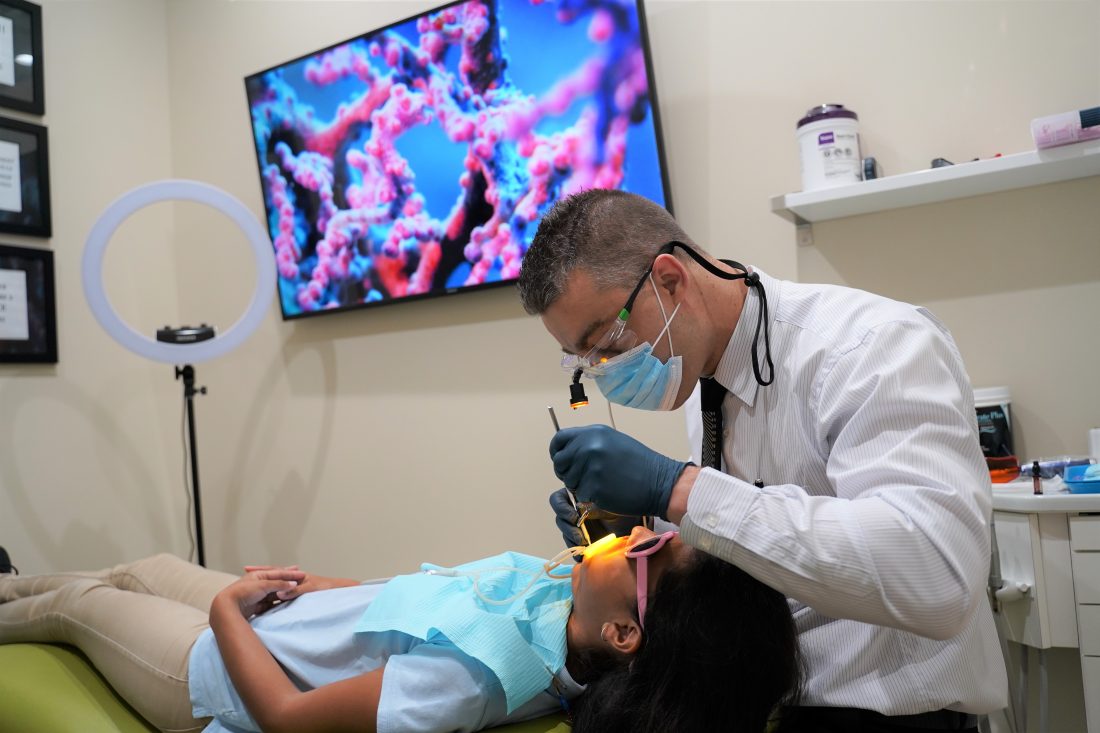What Do You Know About Dental Bonding?
Dental bonding, or composite bonding or teeth bonding, is a cosmetic dental operation used to enhance your smile. During the procedure, your orthodontist hollywood fl will use tooth-colored resin to change the impacted teeth' size, shape, or color. In contrast to other cosmetic dental procedures like porcelain veneers, dental bonding is entirely reversible.
Is dental bonding good for your teeth?
Dental bonding miami doesn't contain any risks to your dental health. If you have healthy gums and teeth, then it's perfectly safe. However, you may need other treatments before dental bonding if you have extensive teeth cavities, gum disease, or other severe dental issues affecting your oral health.

What happens before beginning the procedure?
Before bonding, your orthodontist Hollywood will get down with you and go through your cosmetic goals. They may also take dental X-rays and examine your teeth and gums to ensure you are healthy for the procedure. Priority should be given to treating severe oral health problems, such as severe tooth decay, gum disease, or other conditions.
What happens before dental bonding?
During your dental bonding procedure, your pediatric dentist in miami will:
- Select a color. Using a shade reference, your dentist selects a composite resin material that closely mirrors the shade of your original teeth.
- Organize your dental work. After roughening the surface of your teeth, a liquid conditioner is applied. These acts facilitate the bonding material's adherence to your tooth.
- Use composite resin as a material. Applying, molding, and smoothing resin material produces the required shape.
- Transform the material. A specialized curing laser solidifies the composite resin, which "bonds" it to the tooth's surface.
- Polish that tooth. Your dentist will polish your tooth to a natural-looking gloss and make any necessary final adjustments.
Is it painful to have dental bonding?
Dental bonding usually is not painful because your dentist won't work close to the pain-sensing nerve inside your tooth. Most of the time, dental bonding can be done without any anesthesia. Some people may have to deal with temporary dental sensitivity after their dental bonding procedure, and over-the-counter painkillers can ease this discomfort.
What happens after the dental bonding procedure?
After dental bonding, maintaining good oral hygiene is essential for keeping your mouth looking healthy and attractive. Brush or clean your teeth at least twice a day using a soft toothbrush, fluoride toothpaste, and floss once daily. Additionally, you ought to visit the dentist frequently for cleanings and examinations.

Are there any disadvantages of dental bonding?
While porcelain restorations are relatively resistant to stains, the dental bonding material is not waterproof. Another disadvantage is that bonding lasts only as short as other restorative procedures like veneers or crowns.
Additionally, bonding materials may chip over time. Dental bonding is a fantastic solution for quick cosmetic changes. Other procedures, such as porcelain veneers, are better if you want a more pronounced improvement.
Conclusion
The above-provided details and information will help you learn beneficial facts and details regarding dental bonding. For more informative details and updates, please click on ivanovortho.com.
Article source : https://www.tcdpost.com/what-do-you-know-about-dental-bonding/

Comments
Post a Comment